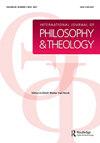克尔凯郭尔的精神审判:宗教焦虑与列维纳斯的他者
IF 0.3
0 PHILOSOPHY
International Journal of Philosophy and Theology
Pub Date : 2019-10-20
DOI:10.1080/21692327.2019.1677172
引用次数: 2
摘要
摘要精神审判确实是“精神的”——只有在一个并不像克尔凯郭尔所说的那样完全没有精神的人身上才有可能——但正如克尔凯郭耳的假名偶尔坚持的那样,它只有作为一个宗教类别才有意义,这是不正确的,除非宗教被重新定义为一个极端笼统的术语,焦虑、内心和欲望。每一个现存的个体都对精神审判有一些起码的了解,哪怕只是对持续迫在眉睫的可能性的焦虑。我认为,正如克尔凯郭尔和他的笔名所意图的那样,精神审判——尽管他们当然没有用莱文主义的术语来形容它——与某种以克尔凯郭耳为开端的主体现象学是不可分割的,这种现象学将精神审判变成了成为自我的本质,一个人为了保护自己的自主权而不顾他人经验的焦虑。因此,在克尔凯郭尔的严格意义上,精神审判最好被理解为一种非常普通的、基本的体验的特殊形式,一种原始的创伤,埃马纽埃尔·莱维纳斯迄今为止为我们提供了最完整的现象学描述。本文章由计算机程序翻译,如有差异,请以英文原文为准。
Spiritual trial in Kierkegaard: religious anxiety and Levinas’s other
ABSTRACT Spiritual trial is indeed ‘spiritual’ – it is possible only in someone who is not utterly spiritless as Kierkegaard means the word – but it is not true, as Kierkegaard’s pseudonyms occasionally maintain, that it makes sense only as a religious category, unless religious is redefined in radically general terms, as Kierkegaard in fact does, along with the ideas of offense, anxiety, inwardness, and desire. Every existing individual has some minimal acquaintance with spiritual trial, if only as an anxiety about a continual imminent possibility. I argue that spiritual trial, as Kierkegaard and his pseudonyms intend it – although they do not of course put it in these Levinasian terms – is inseparable from a certain phenomenology of the subject that begins with Kierkegaard and that turns spiritual trial into something essential to becoming a self, the result of one’s vulnerability to alterity, one’s anxiety to defend one’s autonomy against the experience of the other as other. Spiritual trial, in Kierkegaard’s strict sense, is therefore best understood as a special form of a very ordinary, basic experience, a kind of primordial trauma, of which Emmanuel Levinas has so far given us the most complete phenomenological description.
求助全文
通过发布文献求助,成功后即可免费获取论文全文。
去求助
来源期刊

International Journal of Philosophy and Theology
PHILOSOPHY-
CiteScore
0.30
自引率
0.00%
发文量
12
期刊介绍:
International Journal of Philosophy and Theology publishes scholarly articles and reviews that concern the intersection between philosophy and theology. It aims to stimulate the creative discussion between various traditions, for example the analytical and the continental traditions. Articles should exhibit high-level scholarship but should be readable for those coming from other philosophical traditions. Fields of interest are: philosophy, especially philosophy of religion, metaphysics, and philosophical ethics, and systematic theology, for example fundamental theology, dogmatic and moral theology. Contributions focusing on the history of these disciplines are also welcome, especially when they are relevant to contemporary discussions.
 求助内容:
求助内容: 应助结果提醒方式:
应助结果提醒方式:


